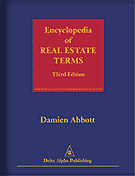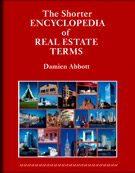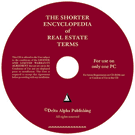rent
1. Derived from the Latin reditus, or the Old French rente, 'to render', 'to yield'. A periodic payment or return that a tenant makes to an owner of land, as recompense for
a right to use and profit from the exclusive occupation of that land, or any other corporeal
property, for a determinable period of time. "The word rent or render, reditus, signifies a compensation, or return; it being in the nature of an acknowledgement given for possession of some corporeal inheritance [1 Co Litt 144]. It is defined to be a certain profit issuing yearly out of land and tenements corporeal." 2 Bl Comm 41 (1 Woodfall's Law of Landlord and Tenant,
para. 7.001; 3 Kent’s Comm 460; Rummel v. New York, L. & W. Rly. Co., 9 NYS 404, 407 (1890);
M. E. Blatt Co. v. United States, 305 US 267, 59 S Ct 186, 83 L Ed 167, 170 (1938);
Robertson v Milan [1952] 2 DLR 420 (Can); 49 Am.Jur.2d., L & T, § 514). Historically,
rent was considered as a service paid by one person to another in return for a right to
enjoy the possession of that other’s land—a burden rendered by one person in return for the
benefit of depriving another of occupation for a period of time; it was regarded as one of the
principal incidents of landownership. It represented the means by which the tenant acknowledged
his fealty to the landowner, while the landowner countenanced the tenant’s existence on his land
(CH Bailey v Memorial Enterprises [1974] 1 WLR 728, 732). However, that notion of rent, which is
rooted in the feudal system of land tenure, has been replaced by a modern view which regards rent
as no more than a contractual payment (whether in a monetary form or otherwise) for the use of land;
remuneration that a tenant is bound to make for the exclusive right to receive the fruits and benefits
of land. “(i) a periodical payment, (ii) paid in return for the occupation of land, (iii)
issuing out of land, (iv) for non-payment of which distress is leviable.”
Escalus Properties Ltd v Robinson [1995] 3 WLR 524, 532 (CA). Thus, “the medieval concept
of rent as a service rendered by a tenant to the landlord has been displaced by the modern
concept of a payment which a tenant is bound by his contract to pay the landlord for the use of this land.
The mediaeval concept has, however, left as its only surviving relic the ancient remedy of
distress.” United Scientific Holdings Ltd v Burnley Borough Council [1978] AC 904, 935, [1977] 2 All ER 62,
76 (HL). In the US, some jurisdictions consider rent merely as the consideration for a contractual
right to use and occupy land; with the obligation to continue payment ending if the right to
occupy the land ceases (Standard Oil Co. of New Jersey v. Elliot, 80 F.2d 158, 159 (4th Cir. SC 1935)).
In any event, if the parties so agree, there need be no payment of rent (even though most leases refer,
at least, to a nominal amount of rent).
Rent is a payment that stems from the relationship of landlord and tenant and is an acknowledgement of
that relationship, and if there is no express covenant in the lease, or an agreement for a lease, there
is an implied covenant to pay a reasonable rent for the use and occupation of the occupied premises.
Rent arising from the relationship of landlord and tenant is strictly called rentservice; as distinguished
from a rentcharge, which is a burden due by an owner of land to another party with whom there is no
relationship of landlord and tenant. However, the term rent may be used sometimes to cover either
form of payment, and in common usage it is used to refer to a payment from a landlord to a tenant.
Rent is payment for land, but if buildings or fixtures are attached to the land and thereby are
included in the total ‘price’, that payment is rent for land in toto.
Rent must be certain in its character, or must be expressed in such a way as to be capable
of being made certain, both in respect of the amount due and the time when it is due. In this respect,
the maxim adopted is id certum est quod certum reddi potest, ‘that is certain which can be rendered
certain’. A rent that is “to be agreed” is uncertain and therefore unenforceable. However, as a rule,
a rent that is to be determined “having regard to the market valuation of the property” or “to be
fixed by arbitration” at the time it is to be fixed is a valid rent; it is capable of being made
certain and, therefore, may be enforced as such (Edwards v. Tobin, 132 Or 38, 284 P 562, 68 ALR 157 (1930);
Anno: 68 ALR 157: Lease—Covenant to Renew—Rental not Fixed; Cann v. Metropolitan Atlanta
Rapid Transit Authority, 396 SE.2d 515 (Ga Ct App 1990); Anno: 58 ALR3d 500: Renewal of Lease—Rental
to be Agreed; Brown v Gould [1972] Ch 53, [1971] 2 All ER 1505; Corson v Rhuddlan Borough Council (1989)
59 P & CR 185 (CA)). Normally rent is a pecuniary payment, but it may be made payable in goods or
services (1 Co Litt 142a; 3 Kent’s Comm 460; Sancourt Realty Corp. v. Dowling, 220 App Div 660,
222 NYS 288 (1927); Pitcher v Tovey (1692) 4 Mod 71, 87 Eng Rep 268; Montague v Browning [1954] 1 WLR 1039,
[1954] 2 All ER 601 (CA)); provided it does not take the form of a share of the produce of the soil,
as that would not represent true fealty for the land. It must be a periodic payment, although the
amount may be varied during different periods of the same lease.
Rent should be paid to the landlord, or his agent, not to a third party and, in common law,
it is payable on the demised premises, on the day that it is due, in cash (although if a landlord
indicates that he will accept a check the landlord cannot refuse such a form of payment at a later
date, so long as the check is honoured (Henderson v Arthur [1907] 1 KB 10 (CA)). However, a lease
may specify, or it may be agreed, that rent is to be payable at any named interval, in any form,
and at any place agreed between the parties or in any manner that is practical to the parties
(Boroughes’ Case, Boroughes v Taylor (1596) 4 Co Rep 72b, 76 Eng Rep 1043; United States v. Forness,
125 F.2d 928 (2d Cir. NY 1942)). Commonly rent is made payable at weekly, monthly, or
(especially in commercial leases in the UK) quarterly intervals, in advance, but if no date is fixed,
it is payable at the end of the period by reference to which the rent has been assessed. When a day
is fixed for payment, the rent is in arrears if not paid by midnight of that day. Traditionally, a
tenant is expected to seek out his landlord and tender the rent due. However, this requirement is
normally dispensed with by a provision in lease as to the time, place and means required for the
payment of rent, or by the more commonly accepted practice of the tenant sending the payment by
check or bank transfer to the landlord on the required day. A rent payment sent by mail is submitted
at the tenant’s risk (although if it is agreed that rent can be paid by mail, as a rule, payment may
be considered to be made when the payment is placed in an authorized mail box (Beavers v Mason (1978)
37 P & CR 452; Fant v. Miller, 218 SW.2d 901 (Tex Civ App 1949)). In practice, a landlord normally
demands the rent in the same way as any other debt, but his failure to do so does not diminish the
tenant’s obligation. Upon an assignment of the landlord’s interest, rent remains payable to the
assignor (the original landlord), until the tenant has been given notice of the change.
A feature of rent, at common law, is that if it is not paid when due, the landlord has a
right to levy distress, i.e. to enter onto the demised premises to seize certain goods of the
tenant in order to elicit payment. However, the usual remedy for non-payment of rent is a simple
court action against the tenant for the sum due or, if expressly permitted under the lease, an
action of forfeiture and recovery of possession of the demised premises through the courts. Strictly,
rent is a payment for corporeal property and is not a payment for an incorporeal right, such as an
easement, license, or profit à prendre, nor is it a payment for goods alone (although in common usage
this limited interpretation is not always applied). A payment outside the terms of a lease, or made
after a lease has expired, e.g. mesne profits, strictly is not rent.
Rent is by nature the effective recompense for the use of land and, on the grant of a lease,
there is normally an express provision for the payment of rent and in that case the express provision
should stipulate when the rent becomes payable. If there is no express condition, there is an implied
covenant that rent is due when the tenant enters into possession of the demised premises.
Whether the entire amount paid by a tenant to his landlord represents ‘rent’ depends on the nature of
the agreement. As a rule, any payment in respect of that which is let, whether described as rent or not,
is rent. Thus, if a single payment is made to the landlord, even if that payment includes an amount in
respect of real property taxes then, even though the landlord is acting solely as a conduit for the taxes,
the entire sum may be considered as rent. On the other hand, a separate payment to the landlord is generally
not rent; “the tenant’s covenant to pay taxes is not the same as a covenant to pay rent, and such taxes
are not, as a general rule, regarded as part of the rent, unless there is a clear intention to that
effect expressed in the lease.” 49 Am.Jur.2d., L & T, § 452, p. 382 (Re Richmond Borough Justices
(1893) 10 TLR 68; 52 C.J.S., L & T, § 463). Also, a collateral payment to a landlord for specified
services, e.g. lighting, heating, cleaning, which is not stated to be rent and does not represent
a payment for what is let, is not normally construed as rent and, therefore, may only be recovered
under a simple contract (Bentley Bros v Metclafe & Co [1906] 2 KB 548 (CA); Bostock v Bryant [1990]
2 EGLR 101; In re Cortese, 21 F Supp 538, 539 (DC Tex 1937); 52 C.J.S., L & T, § 463).
The obligation to pay rent terminates when the relationship of landlord and tenant comes to an
end which can be (a) when a lease for a fixed term comes to an end; (b) when the tenant is evicted
(actually or constructively); (c) if a lease is surrendered or frustrated; or (d) if the tenant
abandons the premises and the landlord re-enters and re-lets the premises.
In English statute law, rent is defined to include “a rent service or a rentcharge, or other rent,
toll, duty, royalty, or annual or periodic payment in money or money’s worth, reserved or issuing
out of or charged upon land, but does not include mortgage interest” Law of Property Act 1925,
s. 205 (xxiii). (The Administration of Estates Act 1925, s. 55(1) and the Land Registration Act 1925,
s. 3(xxv) contain similar definitions, although the former statute excludes a royalty).
See also abandonment, apportionment, assignment of rents(US), assize rent, base rent, best rent,
chief rent, contractual rent, dead rent, double rent, dry rent, equity rent, eviction, excess rent,
exclusive rent, fair rent, fee farm rent, gale rent, gold clause, graded rent, graduated rent,
gross rent, ground rent, head rent, improved rent, insurance rent, interim rent, issues and profits,
leasehold ground rent, market rent, net rent, penal rent, percentage rent, peppercorn rent, primary
and secondary rental, profit rent(BrE), quit rent, rack rent, reddendum, registered rent, rent control,
rent in advance/rent in arrears, rent review clause, rent roll, rent-seck, rental, tonnage
royalty/tonnage rent, turnover rent, virtual rent.
J.W. Singer. Property Law, Rules, Policies and Practices (2d ed. 1997), § 7.2.
“Landlord’s Right to Receive Rent”.
M.R. Friedman. Friedman on Leases (4th ed. 1997), Ch. 5 “Rent”.
3 Tiffany on Real Property (3d ed. 1939), §§ 876-922.
2 Powell on Real Property, § 228.
49 Am.Jur.2d., Landlord and Tenant, §§ 676-830.
52 Cor.Jur.Sec., Landlord & Tenant, §§ 462-715.
A. Riley et al. Advanced Property (1999), Ch. 17 “Rent”.
1 Hill & Redman’s Landlord and Tenant Law, paras. A[2981-3580].
1 Woodfall’s Law of Landlord and Tenant, paras. 7.001-7.161
27(1) Halsbury’s Laws of England, Landlord and Tenant (4th ed. Reissue), paras. 211-257.
2. In economics, rent is the excess of income over and above the minimum required to keep a factor
of production in its present use, i.e. it means economic rent. The uniqueness of rent for land tends
to be that land is in short supply, and so rent may be considered as “that portion of the produce
of earth, which is paid to the landlord for the original and indestructible powers of the soil”
David Ricardo, Principles of Political Economy and Taxation, p. 33 (1917). Or "the economic return
that accrues or should accrue to land from its use in production." Raleigh Barlowe, Principles of Political Economy and Taxation (3d ed. 1978), p. 162. See also quasi-rent.
|




